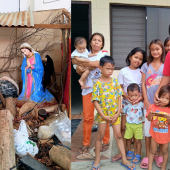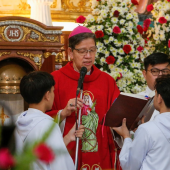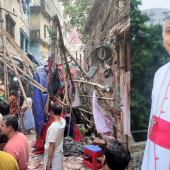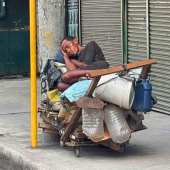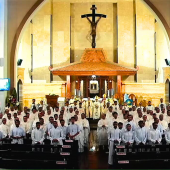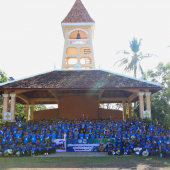Cebu Archbishop spearheads relief work after literally “an earthshaking installation”
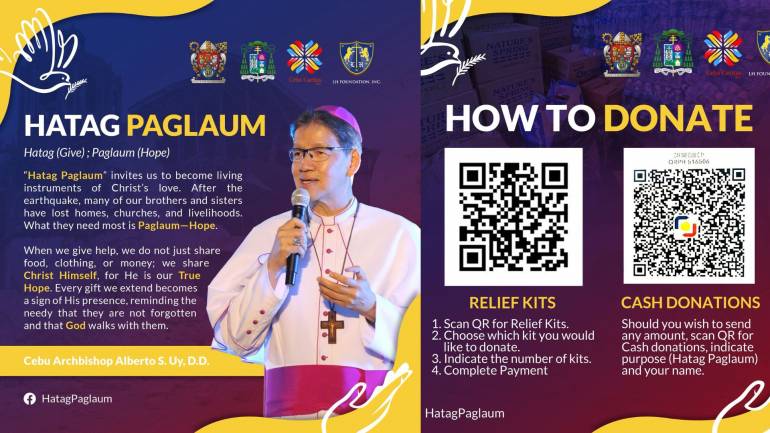
Only three days old as Metropolitan Cebu Archbishop, Philippines, Alberto “Abet” Uy is being kidded around by friends who are saying his installation is literally “earthshaking.”
In a video message posted on Sept 3 on his social media platform “Maymay sa Magbalantay” (A Shepherd’s Advice), Archbishop Abet looked amused but offered a reflection on why God chose him to lead the Archdiocese of Cebu at this time.
Speaking in Cebuano, Archbishop Abet said, “It is God’s will,” but perhaps God chose him because He needed someone with experience in handling a calamitous situation like the earthquake that struck Bohol on October 15, 2013.
Back then, Bohol was struck by one of the Philippines’ deadliest earthquakes with a magnitude of 7.2. The devastation was widespread. More than 222 died, scores were injured, and more than 14,500 structures were destroyed. Roads, bridges, and agricultural farms were damaged, including 21 heritage and parish churches. Three weeks later, Super Typhoon Yolanda (international name: Haiyan) hit the region. Yolanda sent some 40,000 Boholanos then living in temporary shelters back to evacuation centers.
In 2013, Archbishop Abet was serving as parish priest of St. Michael the Archangel Parish in Jagna, Bohol, and at the same time, he was also Episcopal Vicar for the Clergy of the Diocese of Talibon. Recovery efforts involved rebuilding homes and cultural institutions like churches, government institutions, and infrastructure, restoring livelihood and employment, and improving health and sanitation.
Various national and a number of international groups participated to “Build Back Better.” The process was long and complex and continued for years, but it established a blueprint for future rehabilitation efforts.
In the same social media post, Archbishop Abet announced that the Archdiocese of Cebu, through Cebu Caritas, Inc., is launching “Hatag Paglaum” (Give Hope), a relief and fundraising campaign for earthquake victims in partnership with a private foundation.
The LH Foundation, a private organization with a proven track record in charitable initiatives, is a staunch supporter of Church projects and programs.
Archbishop Abet encouraged social media users to visit the “Hatag Paglaum” Facebook page and check out the different ways by which a donor can help, whether it’s a kit of medicines, household goods, tents, family supplies, etc. Money in cash or check may also be coursed through the Cebu Caritas, Inc. bank accounts, details of which are indicated on the “Hatag Paglaum” Facebook Page.
(Malou Guanzon Apalisok is a freelancer based in the Philippines who contributes regularly to RVA)
Radio Veritas Asia (RVA), a media platform of the Catholic Church, aims to share Christ. RVA started in 1969 as a continental Catholic radio station to serve Asian countries in their respective local language, thus earning the tag “the Voice of Asian Christianity.” Responding to the emerging context, RVA embraced media platforms to connect with the global Asian audience via its 21 language websites and various social media platforms.









